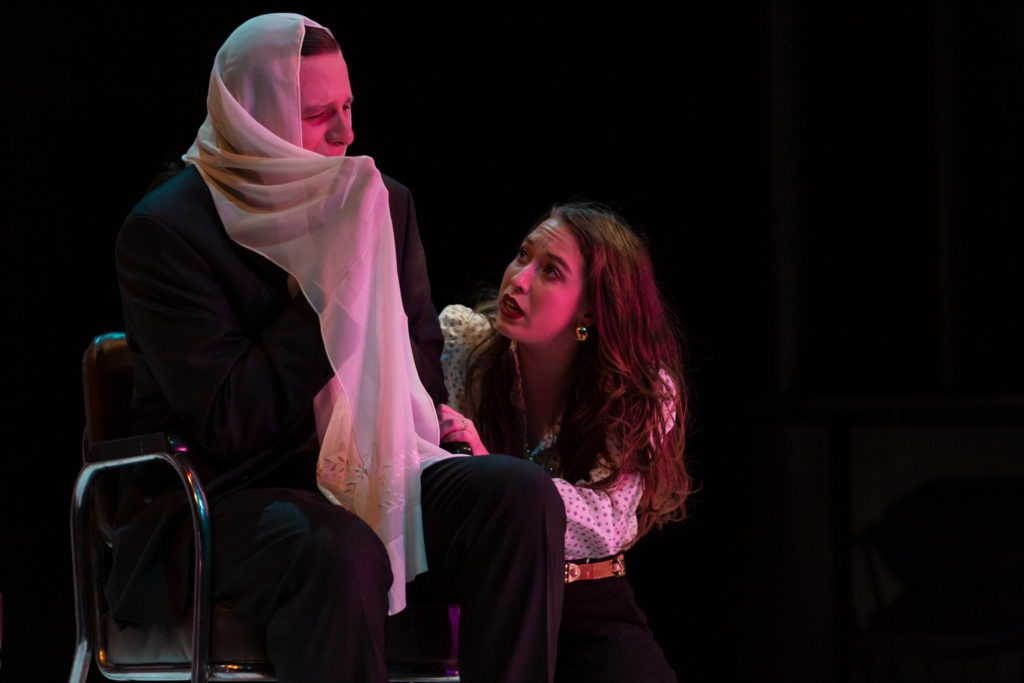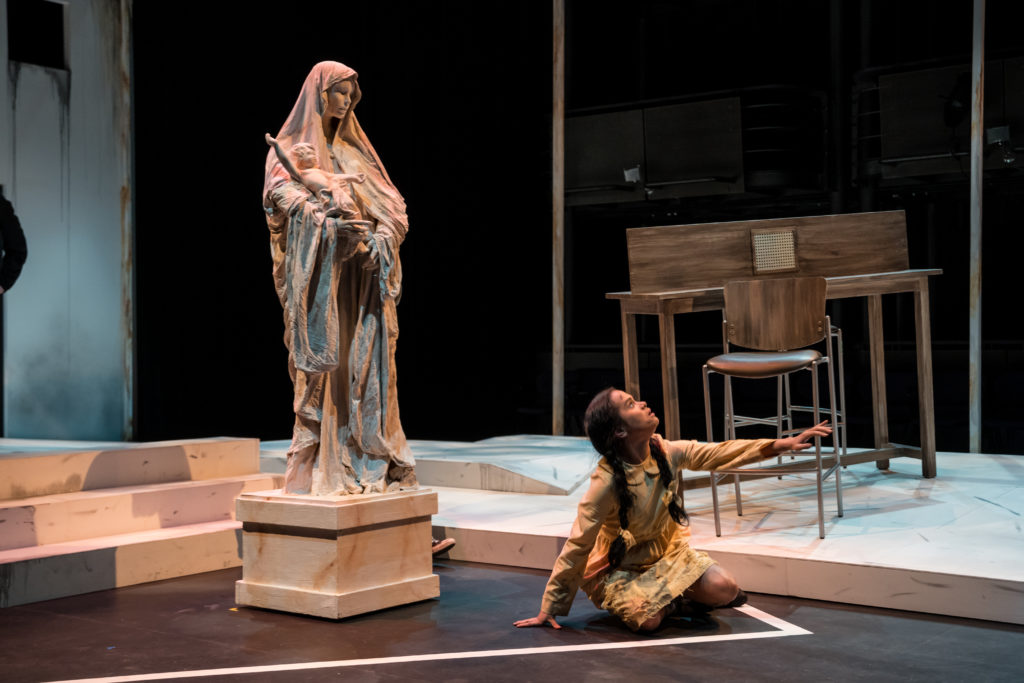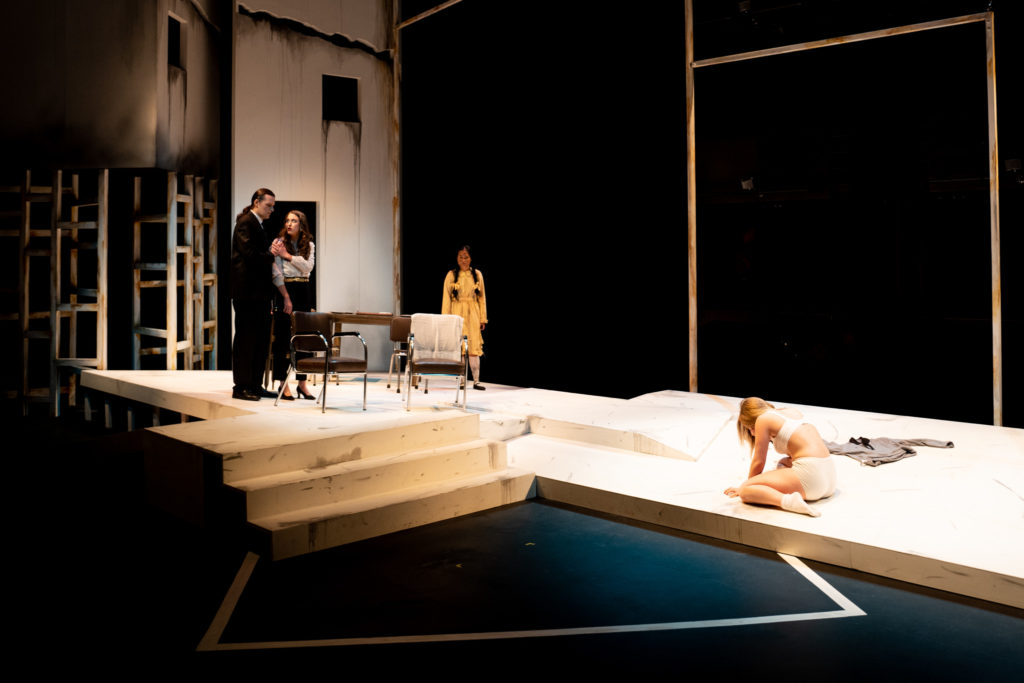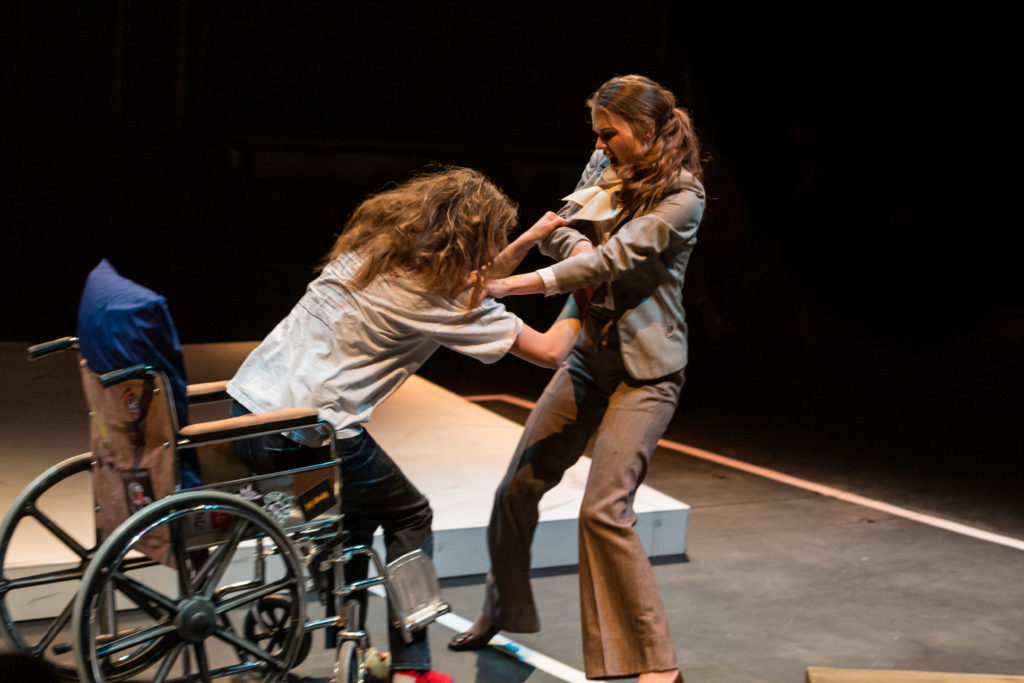Disclaimer: this blog post includes spoilers.
As a theatre novice, Lion in the Streets was my first play and it was by no means a lighthearted one. The play follows Isobel, a nine-year-old ghost, searching for her killer and as a result, encounters the dark, shocking and private secrets and experiences of her neighbours living in the present, seventeen years after her murder.
Equipped with little more than the synopsis of the story, I had brought along my theatre-enthusiast friend, Crystal, to enjoy the experience put together by the UBC Department of Theatre and Film and to serve as a sounding board for what we were about to see, feel, and question.

Expectations and Uncertainties
Going into this experience, there were certainly doubts about my role as an audience member. Am I knowledgeable enough to thoroughly understand the performance? Do I have the proper tools to fully appreciate the play? As a result, this event was one that was outside of my comfort zone. I saw it as an opportunity to expose myself to new things.
Moreover, while we were aware of that Lion in the Streets would be exploring an array of dark themes, Crystal and I chose to go into the experience without reading about the plot in depth or its ending. We wanted to see the play without any preconceptions or expectations so as to make the impression as organic and genuine as possible.
Following up with Crystal, she told me that one of her uncertainties going to see Lion in the Streets was what the atmosphere of the play would be like. Would it be heavy in its entirety with each line and scene being loaded with overwhelming emotion? But this concern was quickly addressed with the play’s use of more lighthearted comical moments but not as to overshadow the important message behind the story.

Feelings and Reactions
Lion in the Streets is a powerful play. When asked why she chose this play for her thesis, Michelle Thorne, the director, explained during the talkback that not only was it reminiscent of her experiences growing up, but it puts marginalized groups into one playing field in a very “Canadian” story.
“Judith Thompson challenged the idea that theatre is for the elite.”
Michelle Thorne, Director
While the play evokes emotions such as anger, confusion, regret, and vulnerability, there was also confusion at moments due to the complexity of the intersecting stories of the different characters. Crystal describes certain scenes as raw and understandable in the her ability to relate to some of the subject matter.
The biggest impression we were both left with in the end was the ending – the murderer was unexpected. We expected a more circular narrative to lead us back to one of the first stories. It can be said that it definitely left us with something to consider.
Final Thoughts and Questions
We were able to attend a portion of the talkback following the play and it was when we learned of some of the intimate details that went into the production. Caleb Pleasure, one of the actors, continuously maintained a portion of his head shaved for his character in what I can only admire as commitment to his craft. As well, Isobel, the main protagonist who is originally Portuguese, was altered to be Filipino to more closely mirror the cultural identity of the actress, Sophia Paskalidis, playing her.
Finally, a factor that was emphasized was the importance of mental health especially given the multitude of dark themes. Throne explained that it was always at the forefront for her consideration for the actors and they developed exercises that allowed the artists to be able to step in and out of the role safely.
“It shows the importance of the story and its message and the potential it can make in people’s lives.”
Caleb Pleasure, Actor, 3rd year BFA Acting

Reflecting on the play nearly two weeks later, Crystal and I are still left pondering. Some of the scenes were uncomfortable to watch and we are still left contemplating the experience. However, maybe this is ultimately an applause to the cast and creative team in their work to make the audience bear witness to the darker side of humanity.
If you are interested in checking out a play for yourself and supporting the UBC’s Department of Theatre and Film, “GOLDRAUSCH”, a comedy play will be showing from March 14–30, 2019 and further details can be found here.
